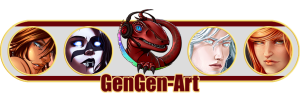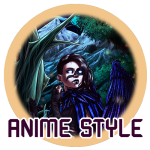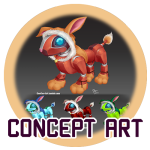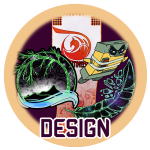
Lessons with Asazoh
Weapon of the Weak
When my oldest, Naihre, moved into her very own room in the house, she was eight years old. She had always been observative and questioned everything that happened around her and which she was told. Sometimes it was exhausting, but more often than not it was refreshing, and if anything, it told me that she was growing up to be an astounding person with a strong heart.
One evening, when I came into her new room to wish her a good night, I spotted her on her balcony. She’d always sit on the floor, close to the door which she left open just a little, so she could slip back in quickly. Curiosity drew her out but cautiousness never left her mind.
The way she stared past the trees and into the dark, I could very well guess that she was pondering on something. Upon my request to join her, she moved an inch, symbolically, to let me know there was room and I was welcome, so I took a seat next to her, right there on the floor. Minutes would go past, time that I was willing to give her. If she was processing something she had seen, I did not want to disturb her. Eventually, she ended the silence herself. “Father? Why do people hate?”
With concern I raised my brows. “Where does this question come from?”
I saw Naihre tilt her head whilst she was still gazing into the distance. Perhaps she wasn’t sure if she should answer my question, or if she even could. Knowing that words did not always come easily, I decided to wait and was rewarded not soon after with a response: “A friend of mine, she wore a dress this morning, but another child was full of anger and said that she can’t.”
“Did that child explain why they think your friend cannot wear a dress?”, I asked my next question, as I wanted to understand the situation a little better.
Naihre pouted. “He said ‘You’re not a girl, you are born a boy’, and then he spewed really, really ugly words at her. Words full of hate, father.”
Quietly I sighed. I presumed this was about a particular friend of Naihre who was, indeed, born in the body of a boy, but she had always liked to be seen as a girl, enjoyed the world of girls and wished for nothing more than to be one, so for us, she was. Yet there had been many souls failing to understand, mostly because they did not care to try. Here was my little daughter, making an honest attempt to understand the world around her, already doing so much better than most adults I had met during my life.
“Let me ask you this: Do you know what hate is?” I tested the grounds with a calm voice. Silence. I watched Naihre eventually shake her head. The way she used the word ‘hate’ told me that she was aware that hate was something negative, and led to bad things, but she did not really have a definition for it yet, so I decided to make an attempt to teach her. “Well, hate is an instinct of our kin. Hate is a mechanism of ours to protect ourselves. It is part of self-preservation.”
“How is hate supposed to help me protect myself?” The look I earned from her was typical, full of doubt but also eagerness to get to the bottom of things.
“Imagine someone you used to always trust hurts you really badly”, I said, using an example to explain the idea. “If you then hate him, you won’t give him another chance to hurt you again.”
“I don’t think I have to hate for that. I can think.” All determined Naihre nodded to underline her own statement, reassuring herself in it. “I can learn to be more cautious.”
At that moment, proud as I felt, I had the urge to chuckle, but I held back, since I did not want to irritate my daughter or make her feel as if I belittled her. After all, she was right. “True, but for some, hate just comes faster than the thought, and once filled with hate, they find it difficult to break free from it.”
As she was diverting her gaze and pulled her knees close to her chest, I watched Naihre process what I had just taught her. Not all lessons were beautiful, and I wished I could tell her prettier tales and protect her from the ugly of the world, but I also knew better than to deny her the truth that she not only sought but had always fundamentally demanded. The little one muttered: “And yet, my friend has done nothing to hurt the other child, so why does he hate her?”
This time it was me who looked past the trees in our garden, and into the void of the late hour. “Have you ever looked into the darkness of the night, where you could see nothing but shadows, intriguing ever so?”
“I have”, the response came quickly. Just a few minutes ago, she had been doing just that.
“How did you feel then?”, I asked.
As honest as I was with her, as honest was she in return: “I was scared. I can’t see, so I think there could be monsters, maybe.”
Letting my own gaze still wander, I tried to imagine what my daughter had been imagining. I pictured horrible creatures lurking out there in the night, with claws and teeth that are waiting to drag you into their realm. “We instinctively fear the unknown, so we do not blindly run into the arms of danger”, I continued my little late-evening lesson. “Sometimes, if we cannot avoid the unknown, if we are forced to look at it, we want to find some kind of power so we can protect ourselves.”
Chipper was the voice of my daughter who caught on: “Like a sword, so I can fight the monsters!”
Now I could not hold back my chuckle anymore. “Yes, that is correct. Like a sword. But did you notice?” Our eyes met again and I saw in Naihre’s face that she was wondering what I was referring to. “You said that there could be monsters. You claim a sword, and now you feel more powerful and therefore, you feel safer. It is the way you chose to deal with your fear.”
My daughter’s expression turned confused at first, then warped into bashfulness. “Was that wrong?”, she asked, her voice merely a whisper.
“It was not wise,” I proclaimed, “but it was an instinct. That hateful child you tell me about, he does not understand your friend wearing the dress. He fears what he cannot understand, so he accuses her of being a monster. In that moment, his cruel words are his weapon – more cruel than any sword could ever be.”
When Naihre looked down with a sadness lingering that stung me deep in my core, I laid an arm around her shoulders, and she moved to lean on me. My hand slowly moved up and down her arm as I tried to comfort her as best as I could. This was a harsh lesson to learn, but a necessary one. “People fear the shadows, the unknown”, I repeated, “so they make up monsters and craft weapons. In truth, my little sunbeam, these people are weak and know no other way to deal with their fears.”
“But what else can I do? I don’t want to wield a cruel weapon like hate. But would it not be unwise for me to ignore the shadows and their dangers? I can’t just blindly walk into them. Father, what if one day there really are monsters?”
My hand moved to pat Naihre on her shoulder; a gesture I often used to symbolize that I was proud of her, that she had done well, and I wanted her to know that asking questions was a good thing. That bit of encouragement had her look up at me once more and I offered her a warm smile as I replied: “You are very right, again. You shall not just walk into the shadows blindly. You shall grab a torch!”
The idea of a solution to her problem filled Naihre’s eyes with excitement. Curious to learn more, she awaited the continuation of the little lesson.
“When you are afraid of something new, something unknown, you can ask for help. Find someone who knows the shadows – a teacher who lights the way with a torch, so you may both look at the unknown and learn safely, and you have to fear no more. You will be surprised at the beauty of this world that you will discover, hiding behind that dark curtain all along.”
Laughter of a cheerful eight-year old girl filled the air, but the moment passed quickly as Naihre became thoughtful once more. “So…”, she fiddled with words, “the people who hate only do so because they are scared?”
I nodded.
“Does that mean we should help them? We need to light the way, and teach them.”
During my search for words, a sigh escaped my lips. “Those too weak to escape their fear and hate, they do not have the strength to learn. It takes effort to learn, effort to listen to a teacher. Hating is much easier, so that is the path that they chose.”
“So we can’t help them?” By the tone of her voice I could tell that Naihre refused to accept the answer. I couldn’t but sympathize with that, and if life hadn’t taught me over and over again that reality had this bitter face to it, I would have refused to accept it just the same.
“I am afraid, all we can do is to keep our books of knowledge open for whenever they are ready to learn and grow. Yet, not everyone can be taught. Wisdom has but one enemy: Ignorance.”
When I saw my little girl lower her gaze once more in sadness, I wrapped my other arm around her as well and pulled her into an embrace, which she happily returned. “Worry not,” I encouraged her. “For every soul who lost the battle to fear and hate, there are hundreds of lights shining as bright as you are, revealing the beauty of this world. Your friend is very lucky to have you.”
Finally approving of something I had told her, my daughter laughed in glee, and smiled up at me.
“Bring your friend after school tomorrow, if you two wish!”, I suggested. “I bet Papa Harbi and Daddy Hanavi would not mind lending her some of their dresses for a small fashion show!”
The “Hurray” Naihre celebrated the plans with still rings in my mind all these years later.










